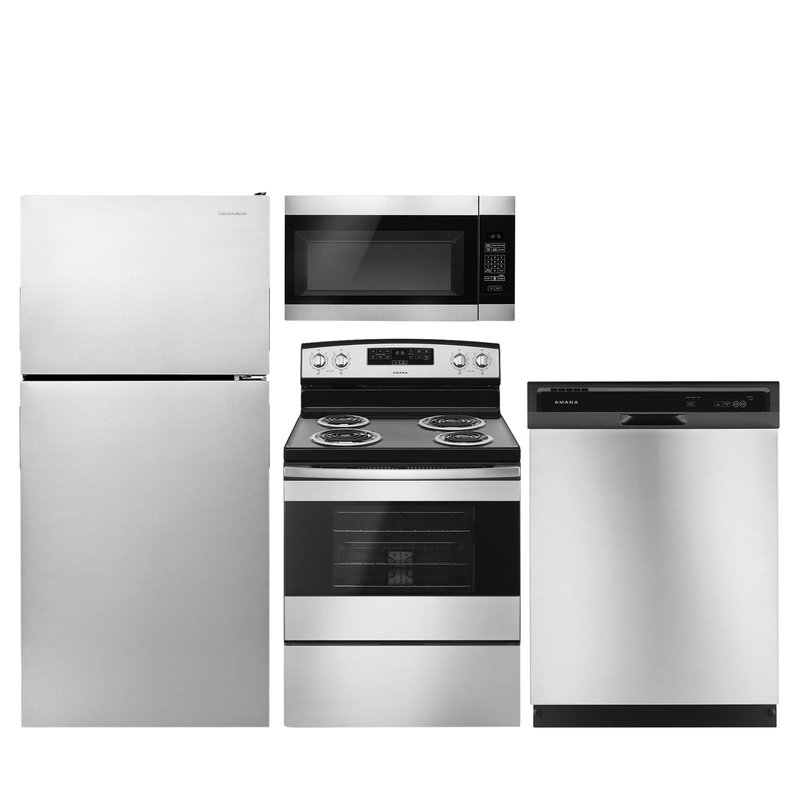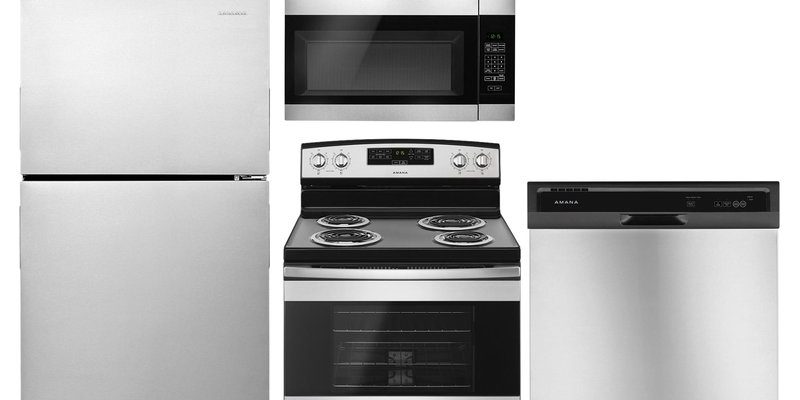
Here’s the thing: appliances like Amana ovens and ranges often come with manufacturer warranties and registration processes designed for the original purchaser. But life isn’t always so straightforward when you’re renting. Let me walk you through what it means to register such appliances, who usually holds the rights to do so, and what tenants should know about this situation.
Understanding Appliance Registration: Why Does It Matter?
Registering an appliance like an Amana oven or range usually means telling the manufacturer you own it. This helps with warranty coverage, getting software updates if applicable, and receiving recall alerts or customer support. It’s like signing your name on a club membership—you show you’re part of the group that gets benefits.
For landlords, registering an appliance protects their investment. If something goes wrong in the first year or two, they can easily get repairs or replacements covered under warranty. But what if the tenant is the one using the oven daily? You might think that means the tenant should register it, but it’s not quite that simple.
Who Can Register an Amana Oven or Range?
When an Amana oven or range is purchased, the warranty and registration are generally tied to the buyer’s name and address. In rental situations, this is usually the landlord. So, technically, the landlord is the one who should register the appliance with Amana.
Tenants usually don’t have the right to register the oven because they did not make the purchase, and the warranty is associated with the original buyer’s details. This is important because the warranty coverage depends on the purchase record and serial number linked to that specific buyer.
Here’s the lowdown:
- The purchaser (landlord) holds warranty registration rights.
- Tenants operate the appliance but don’t own it.
- Registering under the tenant’s name can cause warranty confusion or voidance.
Can Tenants Register Amana Ovens & Ranges Purchased by Landlord?
Honestly, most of the time, no, tenants can’t directly register Amana ovens and ranges if the landlord bought them. The manufacturer looks at the purchase invoice and buyer information when validating warranty claims. If a tenant tries to register the oven under their own name, it won’t match the original purchase record.
That said, tenants can (and should) notify landlords if something goes wrong with the appliance. It’s the landlord’s responsibility to handle warranty support and repairs. Sometimes, landlords might give tenants the appliance manuals or registration details, or even register the product on their behalf.
“Think of it like a borrowed car: the owner holds the registration and insurance, even if you’re the one driving every day.”
Why Might Tenants Want to Register the Appliance?
You might be wondering: if you’re the one using the oven daily, why can’t you just register it? The answer is mostly about ownership and legal paperwork. Registering the oven yourself might seem easier if you want quicker access to customer support or faster troubleshooting via Amana’s services.
But here’s the catch: if you try to sync or reset the oven’s settings through Amana’s online portal or remote apps (some modern models support this), you might need the original registration details or codes linked to the landlord’s purchase info. Tenants without those details often hit a wall.
If the landlord refuses to register or provide warranty info, tenants could find themselves stuck with an appliance that breaks down and no easy way to get official repairs or replacements. That’s why communication with landlords is crucial.
Alternatives and Workarounds for Tenants
So, what if you’re a tenant stuck with an unregistered Amana oven? Here are a few ideas:
- Request landlord cooperation: Ask them nicely to register the appliance or share registration details.
- Use the manual and warranty card: Sometimes warranties can be activated by mail or phone without complicated online accounts.
- Look into universal appliance protections: Tenant-based insurance or appliance warranty plans might offer some coverage.
- Troubleshoot independently: Many ovens have reset codes or troubleshooting steps available on Amana’s website.
Sometimes, just having the model and serial number handy is enough to get through customer service, even if the official registration isn’t under your name.
Can Tenants Use Amana Remote or Smart Apps?
Some Amana ovens now come with remote controls or smart app features for syncing and programming. To get these working, you might need to pair the device or input registration codes. Since these codes often come with registration, tenants might hit snags without landlord input.
If you can’t access landlord info, try this:
- Check the oven’s manual for default reset or pairing procedures.
- Contact Amana’s customer service, explain you’re a tenant, and ask for troubleshooting help.
- See if universal remotes or reset codes can help you regain control temporarily.
What Happens If the Oven Needs Repairs or Replacement?
In the unfortunate event that the Amana oven or range starts malfunctioning, knowing who registered it becomes crucial.
Since the landlord likely holds the warranty, they should be the point of contact for repairs or replacements. If a tenant tries to handle this independently without warranty registration, they might face out-of-pocket costs or delays.
That said, responsible landlords typically want their appliances working well. Some landlords welcome tenants reporting issues quickly so repairs can happen before things get worse.
Strong communication benefits everyone here. Try to keep a paper trail of repair requests or emails, especially if you suspect the landlord might ignore problems.
Summary: The Tenant’s Role With Landlord-Purchased Amana Appliances
Let me sum it up like this: if the landlord bought the Amana oven or range, they’re the ones who generally get to register it. Tenants are the everyday users but don’t usually have the legal ability to register the appliance for warranty purposes.
That doesn’t mean you’re powerless. You can still request help, troubleshoot, and ask for repairs. If you’re savvy, knowing how to reset codes or pair remotes can reduce headaches. Just remember, the warranty and official support hinge on that initial purchase registration.
Think of it like renting a car—you drive it, but the registration and insurance belong to the owner. You still expect the car to work, but the paperwork stays with them.
When you keep good communication and understand how these registrations work, you’ll avoid surprises in your rented kitchen and keep your Amana oven and range cooking happily.
—
I hope this makes things clearer the next time you’re wondering about registering landlord-owned appliances. It’s a bit of a dance between ownership, responsibility, and practical use—but now you’ve got the steps.
